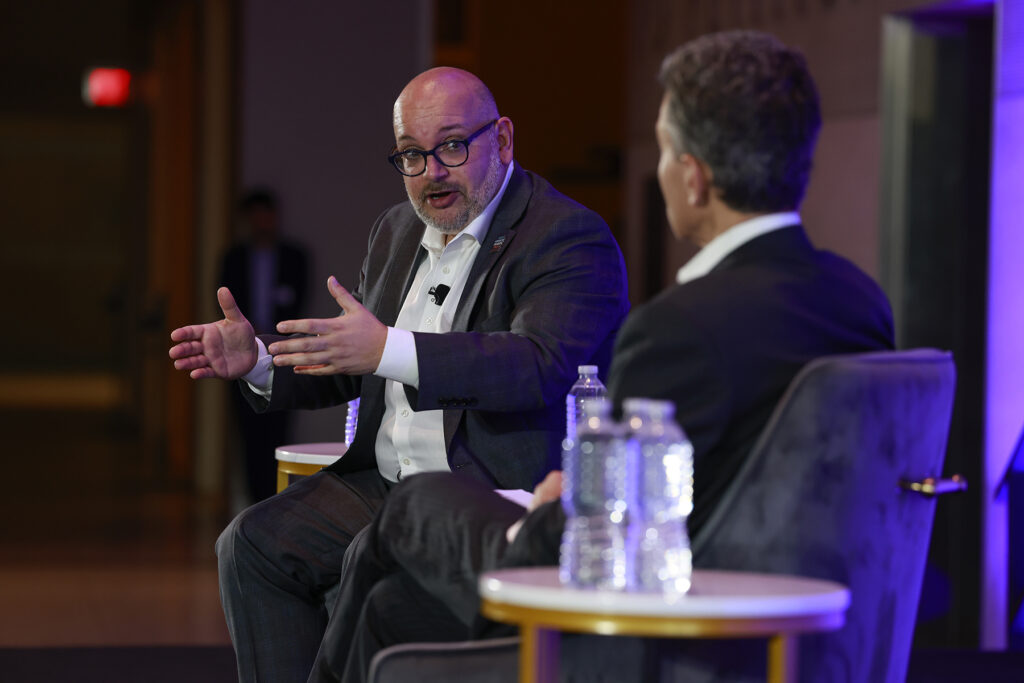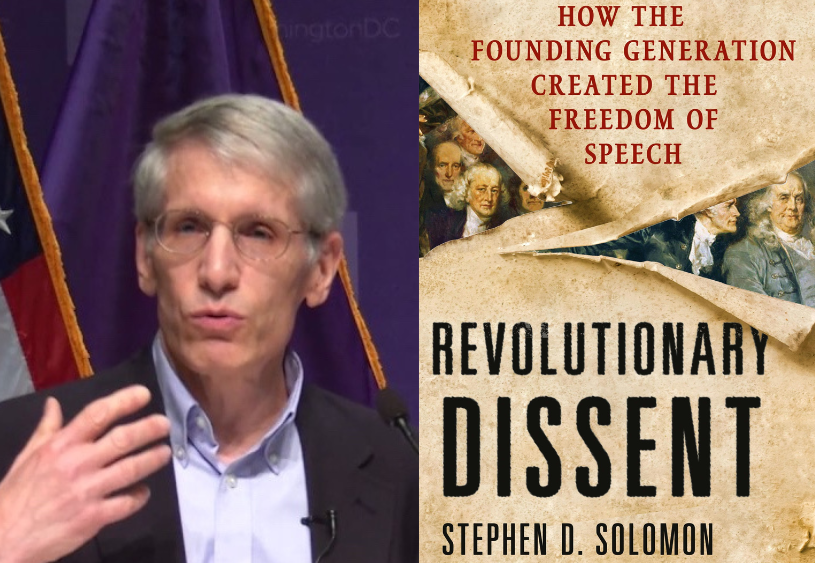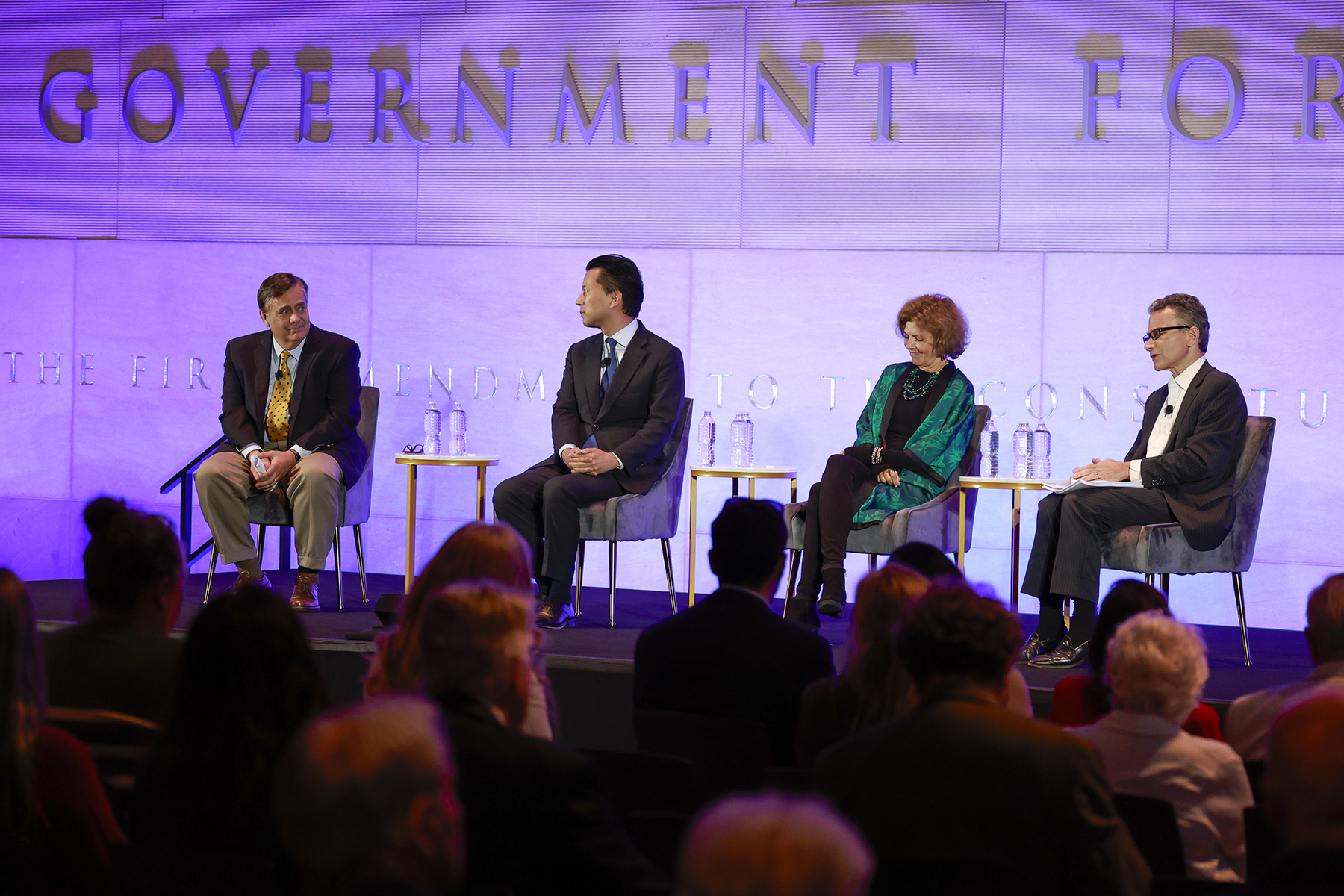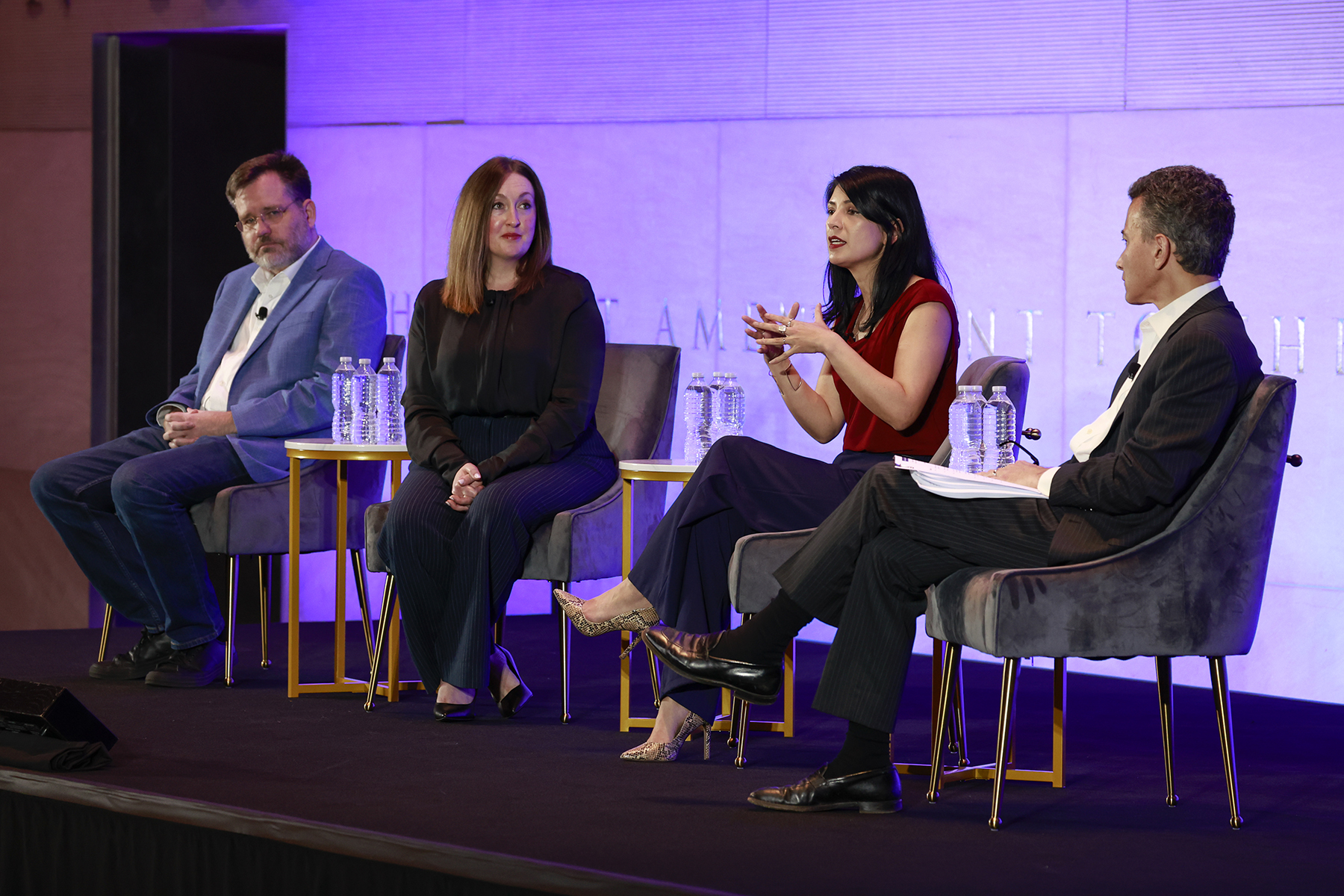Jason Rezaian, the newly appointed director of press freedom initiatives for The Washington Post, discussed the vitally important role of journalists in society in his keynote address at the 2024 National First Amendment Summit at the National Constitution Center in Philadelphia on Tuesday.
Rezaian, The Post’s former global opinions writer and Tehran bureau chief, spent 544 days unjustly imprisoned by Iranian authorities on espionage charges from July 2014 until he was released in January 2016. He authored “Prisoner: My 544 Days in an Iranian Prison,” which was later adapted as a nine-episode narrative audio series.
“Democracy is on the line,” Rezaian told attendees. “Doesn’t matter who you’re going to vote for in a couple weeks, we’re in a more compromised situation than we’ve ever been.”
Speakers at the event, co-hosted by the National Constitution Center, NYU’s First Amendment Watch and the Foundation for Individual Rights and Expression, also addressed campus speech and free speech conflicts including censorship of online speech and the threats of disinformation.
Rezaian recounted the night that he and his wife were arrested at their home in Tehran, the same day the pair received one-year extensions on their press credentials. He said he spent 49 days in solitary confinement, while his wife spent her entire 72 days in prison in solitary confinement. He said he was subjected to “a massive propaganda campaign” and was “threatened with execution on a daily basis.” He was also later the focus of a 30-episode television spy drama, he said, which has the “highest production budget of any show that the Iran state television has ever made.”
Rezaian said that while he could have easily turned his back on journalism, it was important to him to tell his story and “do whatever I could to help others in an attempt to make that period in my life not feel [like] completely wasted time.”
His goal with his new role at The Post is to “build something from the ground up,” he said, in hopes that it “will serve to support, protect and help journalists in trouble, here and all over the world.”
He stressed the overriding importance of journalists remaining united in their critical function of informing the public. He said that despite competition for subscribers, scoops or stories, “when it comes to our fundamental rights to do this job and protecting one another, supporting one another, when one of our own is in trouble, there can’t be any distance between us.”
Protecting the press, up until recently, Rezaian said, “was a core value that the United States of America always stood for in all circumstances.”
“I hope that we can return to that position, that wherever an independent journalist or anybody who is repressed, detained, harassed for expressing their views, opinions or reporting the truths on the ground of any place in the world, we’re going to stand up for people in those situations,” Rezaian said. “I think we’ve done a decent job of it always, but it’s become politicized. When it’s politically helpful to stand up for a journalist somewhere on the other side of the world, we do it. When it’s not, we don’t. I think we need to return to this idea that this is a core value, not only our ability to express ourselves, but the value of the individual’s life and liberty. It’s sacred to us.”
Watch Rezaian’s full address:




